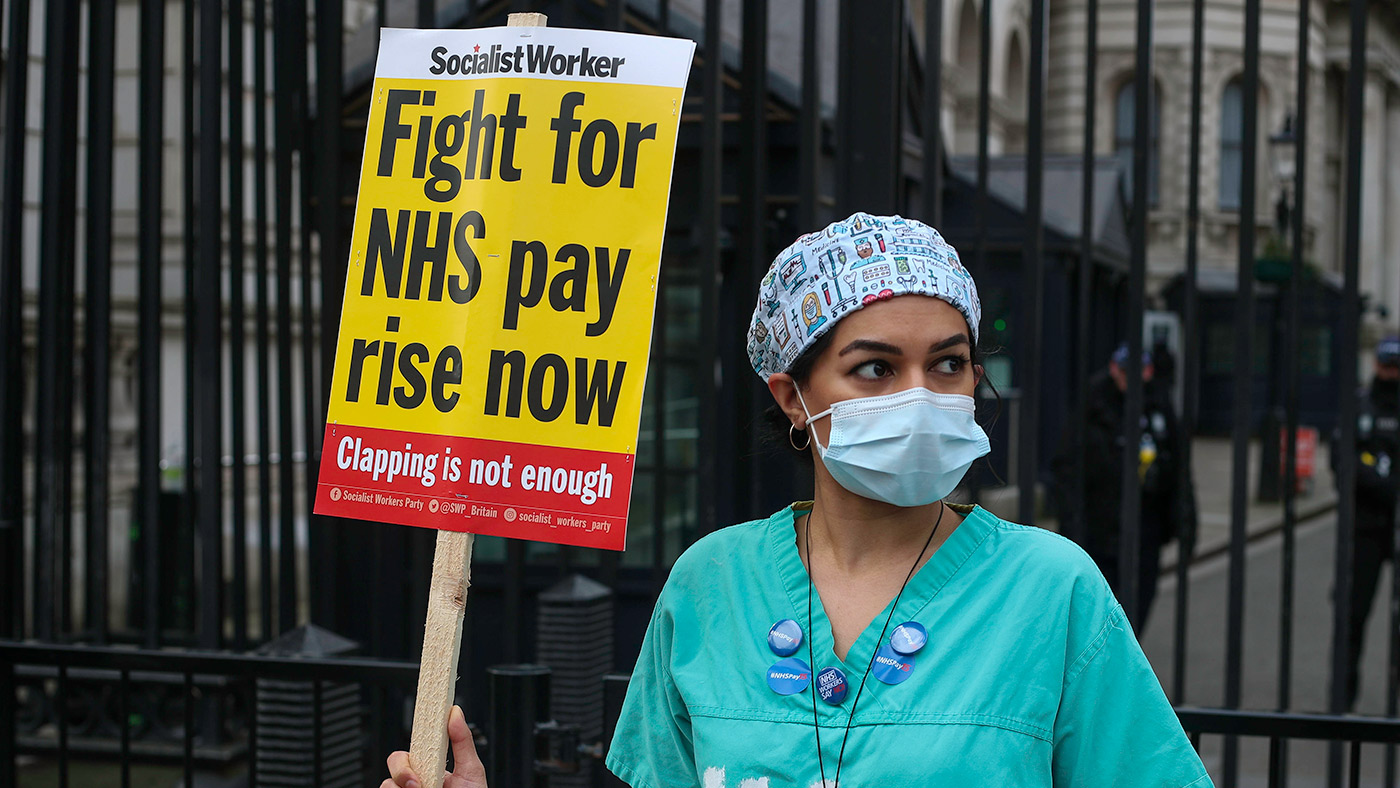Why codeine deaths have reached a record high
Rise of the ‘dark web’ and demography of addicts may explain surge

A free daily email with the biggest news stories of the day – and the best features from TheWeek.com
You are now subscribed
Your newsletter sign-up was successful
Codeine-related deaths have increased by almost 25% in the past year to a record high, according to data from the Office for National Statistics (ONS).
Analysis shows that 212 people died of drug poisoning from codeine in 2020, up from 167 in 2019, 169 in 2018 and 156 in 2017. The latest figure is the highest number of deaths from the drug in a calendar year since records began in 1993, and more than double the number from ten years ago, when 91 people died from codeine.
Of the 115,000 prescriptions that are written for opioids in the UK every day, five are thought to result in a death, according to the Priory Group.
The Week
Escape your echo chamber. Get the facts behind the news, plus analysis from multiple perspectives.

Sign up for The Week's Free Newsletters
From our morning news briefing to a weekly Good News Newsletter, get the best of The Week delivered directly to your inbox.
From our morning news briefing to a weekly Good News Newsletter, get the best of The Week delivered directly to your inbox.
Several theories have been put forward for the surge in codeine deaths. Ian Hamilton, a senior lecturer in addiction and mental health at the University of York, tells The Telegraph that the internet and unregulated dark web marketplaces have made the illegal sale of codeine simpler and more accessible.
He says the dark web “makes it relatively easy for people to source drugs like codeine without having to leave their house” and points out that suppliers “won’t place any limits on how many pills an individual orders, providing they can pay for them”.
He adds that this trend has “undoubtedly contributed to the rising problem many people are having with use of non-medical prescription drugs”.
The ONS points out that there is also an ageing group of long-term addicts are who “increasingly susceptible to a fatal overdose” as they get older.
A free daily email with the biggest news stories of the day – and the best features from TheWeek.com
James Nicholls, the chief executive of Transform Drug Policy Foundation, said the “grim drug death statistics” are a “clear signal that an urgent change of course is needed in UK drug policy”.
Earlier this year, The Times said experts in the UK were working to “stave off a US-style addiction crisis”, referring to the American epidemic in which deaths from opioid overdoses have exceeded those from HIV or Aids. The newspaper said there had been warnings that a year of lockdowns might have led to “more ‘stopgap’ pain relief prescriptions while sufferers wait longer to see specialists”.
The Independent reported earlier this week that drug-related deaths in Scotland rose to a record 1,339 last year, with 1,192 of them related to use of opioids including codeine. England and Wales has also seen a record number of overall drug-related deaths, with 4,561 deaths related to drug poisoning registered in England and Wales in 2020.
Codeine works by stopping pain signals from travelling along the nerves to the brain. The NHS warns that codeine is addictive and those who take it for a long time can become tolerant to it, meaning they need higher doses to control pain over time.
-
 Minnesota's legal system buckles under Trump's ICE surge
Minnesota's legal system buckles under Trump's ICE surgeIN THE SPOTLIGHT Mass arrests and chaotic administration have pushed Twin Cities courts to the brink as lawyers and judges alike struggle to keep pace with ICE’s activity
-
 Big-time money squabbles: the conflict over California’s proposed billionaire tax
Big-time money squabbles: the conflict over California’s proposed billionaire taxTalking Points Californians worth more than $1.1 billion would pay a one-time 5% tax
-
 ‘The West needs people’
‘The West needs people’Instant Opinion Opinion, comment and editorials of the day
-
 Captain Tom charity closes to donations amid daughter’s pool row
Captain Tom charity closes to donations amid daughter’s pool rowSpeed Read Hannah Ingram-Moore to appeal council order to demolish spa complex at her home
-
 4 Americans kidnapped in Mexico by armed gunmen, 2 killed, FBI says
4 Americans kidnapped in Mexico by armed gunmen, 2 killed, FBI saysSpeed Read
-
 The Week Unwrapped: Sex and health, the Earth’s core and another new year
The Week Unwrapped: Sex and health, the Earth’s core and another new yearpodcast Is the NHS failing British women? What’s going on at the centre of our planet? And what’s in a date?
-
 National nursing strike: should the patient ‘always come first’?
National nursing strike: should the patient ‘always come first’?Talking Point Recent YouGov poll found that 65% of public approves of strike action
-
 The science behind lab-grown blood
The science behind lab-grown bloodfeature Development of ‘absolute game changer’ could help those with sickle cell and other conditions
-
 ‘Moving CBBC online isn’t modernisation – it’s dangerous’
‘Moving CBBC online isn’t modernisation – it’s dangerous’Instant Opinion Your digest of analysis from the British and international press
-
 The Week Unwrapped: Quitting China, social age checks and dental deserts
The Week Unwrapped: Quitting China, social age checks and dental desertspodcast Why has AirBnB given up on China? Are social networks finally taking age limits seriously? And why is it so hard to find a dentist?
-
 ‘Negotiation with Putin would be a moral disaster’
‘Negotiation with Putin would be a moral disaster’Instant Opinion Your digest of analysis from the British and international press